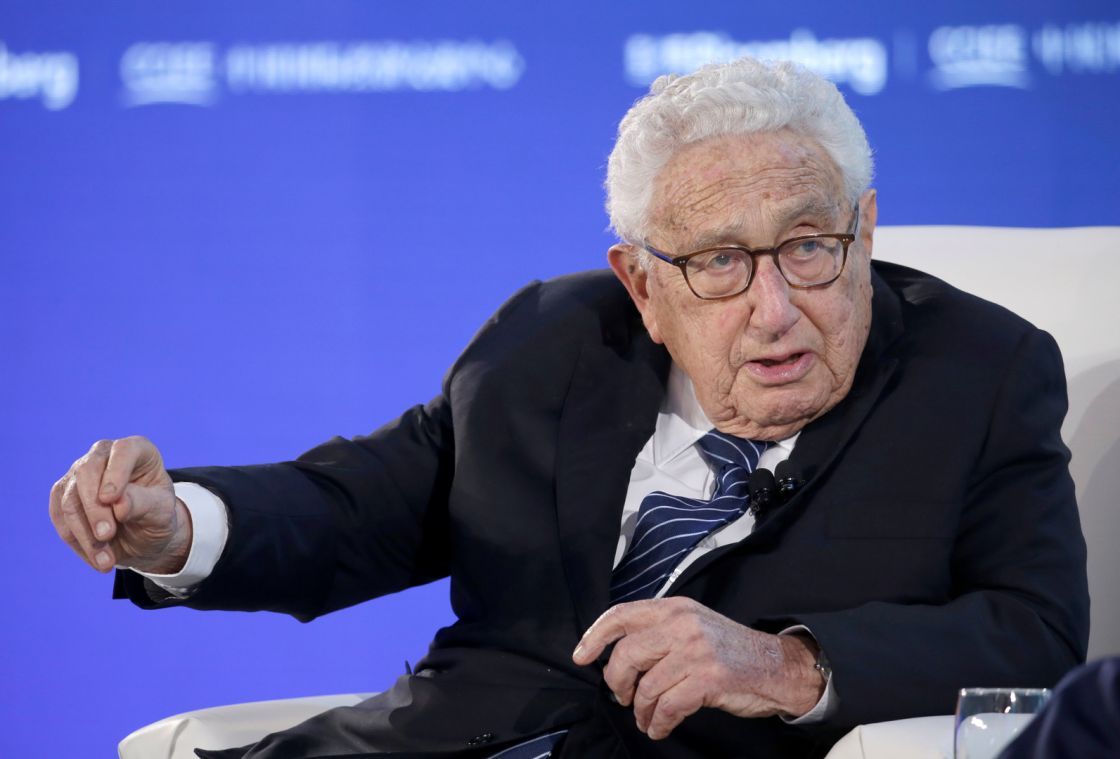- Articles
- Posted
Kissinger’s “Shocking” Remarks, and the Comedic Tragedy?
During the past ten days, Henry Kissinger, the former US Secretary of State and National Security Adviser, was hosted in two different events, the first being the Financial Times Weekend Festival and the second was the Davos Conference.
At both events, Kissinger made remarks about the current international situation and its prospects, particularly Ukraine and its repercussions. His remarks were considered “shocking” in various Western circles and were widely attacked by various media and political sides.
Among the remarks he made, we briefly note the following:
• “Ukraine should give up territory to Russia to end the war”.
• “In my opinion, move towards negotiations and peace must begin in the next two months in order to determine the outcome before the upheavals and tensions begin, which will not be easily overcome, including the relations between Russia and Europe and Ukraine with Europe”.
• “Achieving a neutral status of Ukraine and as a bridge between Russia and Europe is the main objective in the current situation”. “The ideal outcome would be if Ukraine takes place as a neutral country as a bridge between Russia and Europe”.
• “The global geopolitical situation will witness a huge change with the end of the war in Ukraine”.
• “We will not be able to do anything to create disputes between Russia and China”.
Possible Explanation
When Kissinger says that the Ukrainians should agree to negotiate with the Russians and make concessions, including conceding territory from Ukraine, it is absolutely clear that what is meant is negotiations not between the Ukrainians and the Russians, but between the Americans and the Russians, whether directly or indirectly. It goes without saying that the current Ukrainian leadership operates under the direct command of the Americans, and the decision to negotiate and concede or not is made in Washington and not Kyiv.
In this sense, Kissinger’s remarks represent a current within the American financial elite that believes things are not going as they should and that continuing in the same course of action poses major risks, including the “global geopolitical situation”, which implies a danger to the global financial and political system, especially the dollar.
Specifying a timeframe that does not exceed two months to reach a solution (i.e., an agreement), or at least to start it, shows the extent of the predicament that the West and its system are experiencing. The predicament is not only related to the approaching autumn and winter seasons when the energy and food crises will reach their peak, but even more worrisome for the global elite is that the continued confrontation will lead with time to the objective solidification of several developing trends that can soon go beyond the point of no return, the most important of which are:
First: The strengthening of the alliances between China and Russia, and all of the BRICS countries, the Gulf states, and other countries (that is, the countries that produce and own the largest part of the world’s various raw materials, including oil and gas, metals including gold, and basic food crops).
Second: The development of these alliances towards getting the new parallel global financial system into full operation, which will mean overshadowing the euro and the dollar together into much smaller areas than they occupy now, which means an explosion of their astronomical inflation, which also means internal crises in the West, the beginnings of which we have already started seeing.
Third: The continuation of the battle, the sanctions, and the blockade, objectively pushes (and will push further) towards a complete resolution of the political battle inside Russia itself towards economic and financial detachment from the West. More precisely: towards striking Western interests and influence in Russia, primarily the part of the oligarchy linked to the West. This means losing the main tool that can be used against Russia from within.
In short, Kissinger’s views, and his vocalization of them, could mean that it has become clear to a significant portion of the American elite, far from media propaganda, where this battle will lead if it continues (not the Ukraine battle, but the battle of establishing a new world order). Therefore, they want to stop it at the limits it has already reached, and they see no way to do that but to negotiate and make concessions that ensure that the development of global alliances does not continue in the same direction in which it is going now. In this sense, who is better than Kissinger, whose fame came from his contribution to the wedge between China and the Soviet Union, to give the starting signal in this direction?
One can say that the Soviet Union – to a significant extent – began to collapse since the rift with China occurred. It may seem naive to expect that the same game will be repeated again in the 21st century by trying to make some concessions to Russia in parallel with escalating against China on the Taiwan and other issues. If “history repeats itself, once in a tragic way, and the second in a comic way”, nevertheless, in major turning points, it may repeat itself in a composition of great and solemn tragedy, and a comedy that is farcical to the point of absurdity, at the same time and on the same stage.



 Political Editor
Political Editor